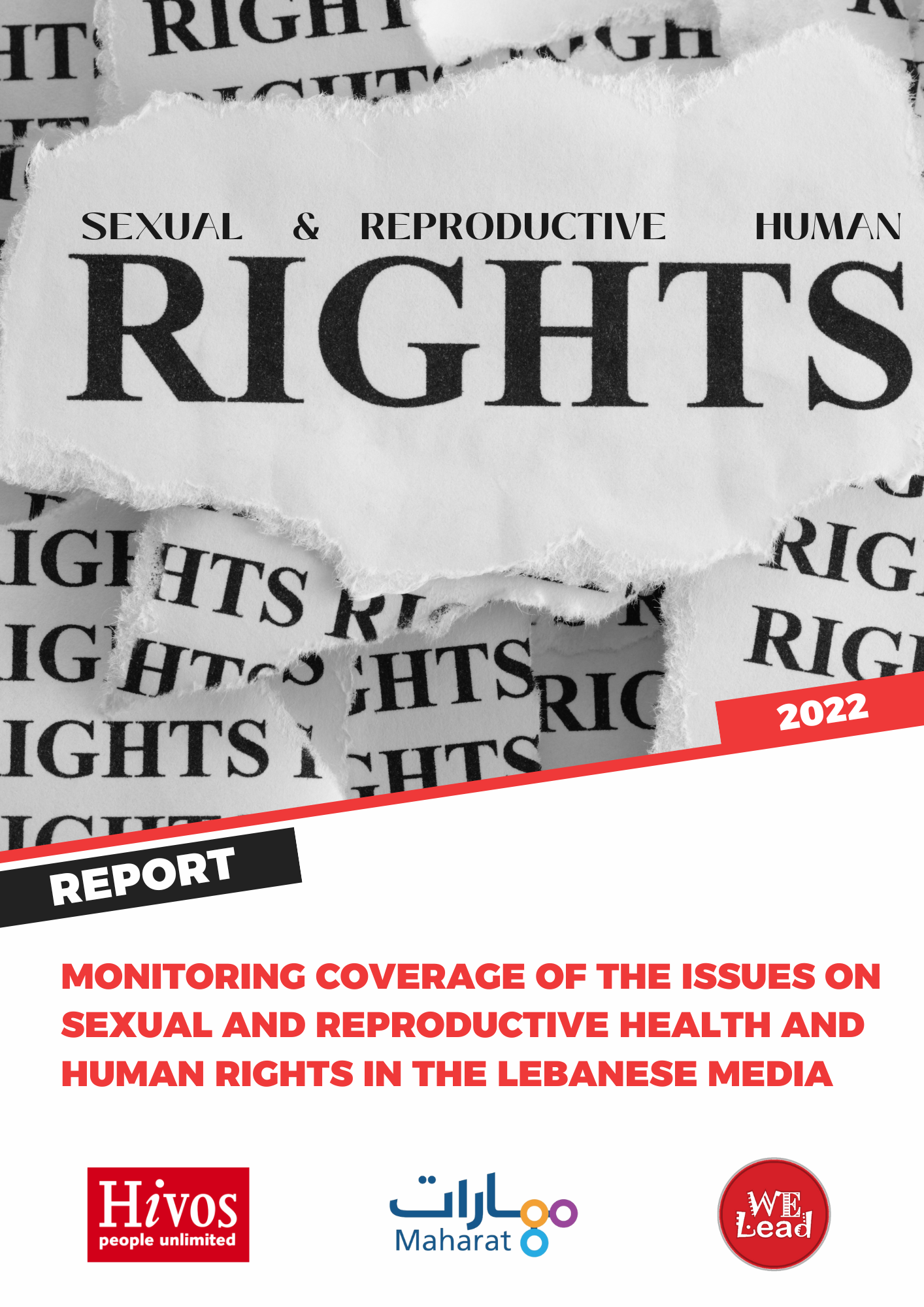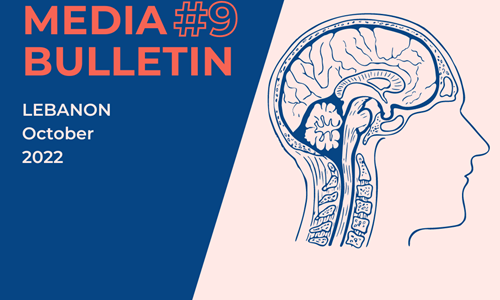
Monitoring coverage of the issues on sexual and reproductive health and human rights in the Lebanese media
This study aims to monitor the media's interest in spreading awareness about Sexual and Reproductive Human Rights, in addition to the coverage of violations of Sexual and Reproductive Human Rights.
This study also seeks to determine the media's interest in covering the governmental and non-governmental institutions’ efforts related to Sexual and Reproductive Human Rights (policies, strategies, action plans, implementation mechanisms, programs...).
The topics of media coverage, the target groups, the people who are the subject of the stories, and those who influence them, are also identified in this report.
Based on the findings of the report, 32% of the monitored media topics revolve around sexual harassment and violations, followed by the topic of oppression towards the LGBTQIA community reaching 15%, social violence and honor killings at 13%, child marriage at 8%, and topics like menstrual requirements and sexual exploitation of women at 4.5%, then digital sexual extortion and the right to abortion at 3%. Other covered topics with a lower percentage were related to pregnancy, childbearing and family planning.
The report also includes an analysis of the questionnaires conducted with migrant workers, refugees, and the local community regarding media coverage and their sources of information on sexual and reproductive health and human rights.
The media was found to be the first source of information and news related to sexual and reproductive human rights, according to the results of the questionnaire directed to a sample of 24 people distributed equally between men and women from the categories of migrant workers, refugees and the local community.
The results of the analysis of opinion poll data showed that 17 of the participants consider that the media in their country does not adequately and professionally cover issues of sexual and reproductive health and rights, and five consider that the media coverage is satisfactory, compared to 2 who consider it non-existent.
Social media platforms were found to be the media that are mostly concerned with addressing the issue of sexual rights and reproductive health, according to the results of the questionnaire directed to the categories of migrant workers, refugees and the local community, within a sample of 24 people, followed by TV channels and then websites.
Check out the full report:





